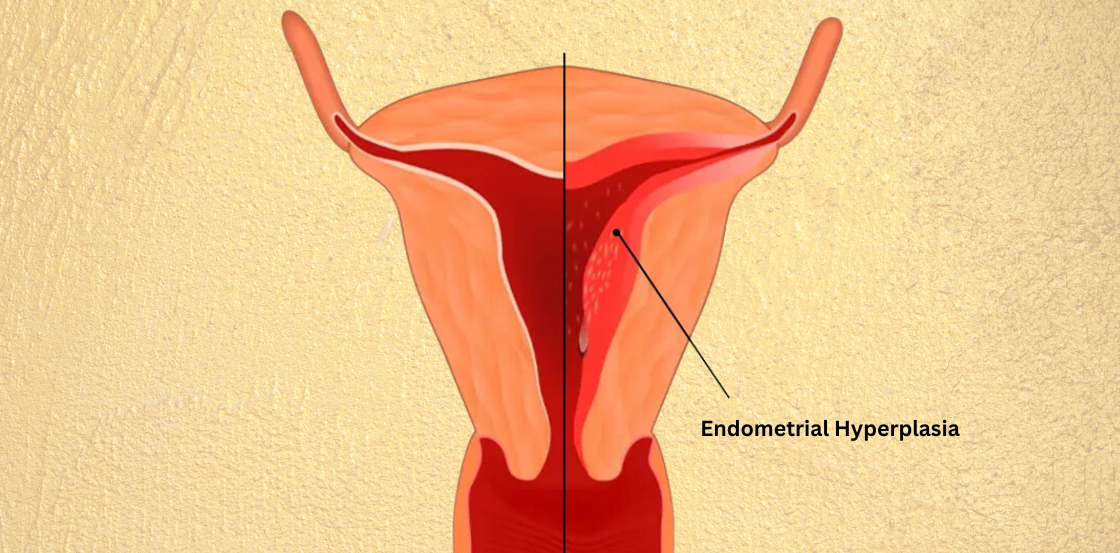Post link copied to clipboard!

Endometrial hyperplasia is an adverse condition when the uterus lining (Endometrium) grows and becomes too thick. Your endometrium sheds during your menstrual period. Sometimes, endometrial hyperplasia can lead to endometrial cancer. In this article, let us discuss the best endometrial hyperplasia treatment.
This condition is uncommon. It affects people who are transitioning to or just completed their menopause. People who are experiencing endometrial hyperplasia will have the following symptoms:
All these endometrial hyperplasia symptoms are usual in people who are transitioning to menopause. Skipping periods and irregular periods mark this stage. If you’ve any of the above symptoms, visit our Top gynaecologist clinic in London. Our private gynaecologists will help you identify if you’ve endometrial hyperplasia.
Women experiencing endometrial hyperplasia will have higher oestrogen levels and comparatively lower progesterone levels. These hormones play a quintessential role in menstruation and pregnancy. During fertilisation, oestrogen thickens your endometrial wall, whereas progesterone prepares your uterus or womb for possible pregnancy.
Suppose ovulation or fertilisation doesn’t occur, progesterone level decreases. It triggers the uterus to shed its lining, causing menstruation.
People with endometrial hyperplasia secrete very little progesterone. It’ll cause the lining to grow and thicken. The cells making the uterus lining amalgamate together and become irregular.
Yes, endometrial hyperplasia can cause pelvic pain. But, abnormal bleeding is the most common symptom.
Rarely, it can occur in people younger than 35 years. Women who are in menopause or perimenopause have more possibility of endometrial hyperplasia. Risk factors also include:
Several conditions can cause endometrial hyperplasia. If you would like to know what is causing abnormal uterine bleeding, consider booking an appointment with our private gynaecologists We diagnose this through the following endometrial hyperplasia diagnosis procedures:
Endometrial hyperplasia treatment often involves progestin. Progestin is the artificial version of the progesterone. It is available in many forms:
If your condition worsens or doesn’t improve with progestin treatment, our private gynaecologists in London may recommend a hysterectomy – to remove your uterus.
A hysterectomy is not usually essential to treat endometrial hyperplasia. 90% of women show high effectiveness in progestin therapy. Our private gynaecologists often recommend a hysterectomy when they detect chances of developing uterine cancer and diagnose complex atypical endometrial hyperplasia.
We recommend regular ultrasound scans, biopsies or hysterectomy to prevent cancer development. Our best private gynaecologists in London will consider your tests and family history before deciding your treatment plan. Certain endometrial hyperplasia types can lead to cancer.
Remember that not all types of endometrial hyperplasia will lead to cancer. The likelihood of developing cancer varies between 8% and 30%, depending on your type of endometrial hyperplasia.
Contact Top Gynaecologists London if you experience painful cramps, vaginal bleeding post-menopause, heavy bleeding, pelvic pain or vaginal discharge. If you experience discomfort, consult with our best gynaecologists in London, UK.